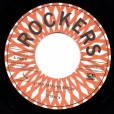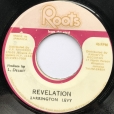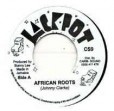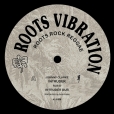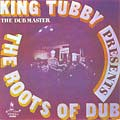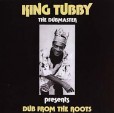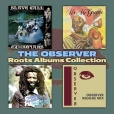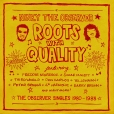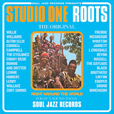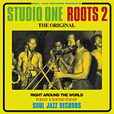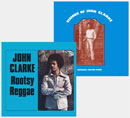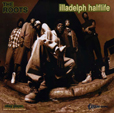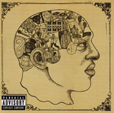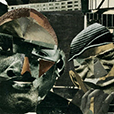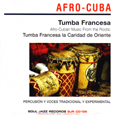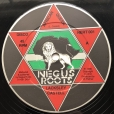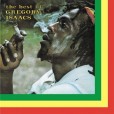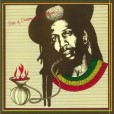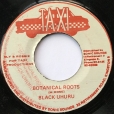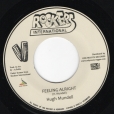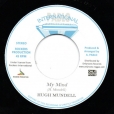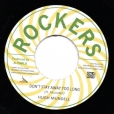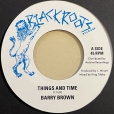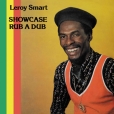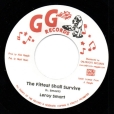Your basket is empty

Roots anthem, produced by Tubby for Bunny Lee.
The Ethiopians’ Slave Call LP and two Freddie McGregors — Mr McGregor and Showcase aka Lover’s Rock Jamaica Style — plus a dazzling haul of singles from 1978, revealing Niney at the peak of his genius, and easily worth the dough by themselves.
Staggering. Beautifully paced and varied, this classic compilation hasn’t aged a bit. Killer after killer, including numerous sides out here for the first time.
‘Vol 1 was mighty fine, presenting rare and deep recordings from Studio One’s mid-70s heyday. Hard to believe the Vol 2 is even better… As with all Soul Jazz material, the vinyl is heavyweight, with fine packaging and good liner notes. Reggae music doesn’t get much better than this: buy immediately and play loud’ (David Katz, Fact).
‘This will be hard to beat in the Studio One series in my humble opinion, amazing stuff. Too many good tunes on here to pick. Check this out you will not be disappointed’ (RYM).
‘Soul Jazz still crank out the best. Non-completist, non-purist, but always 100% killer’ (Mojo).
‘If anything, Studio One Roots 2 is even better than the first volume and has some superb (and rare) tracks’ (Record Collector).
Visions Of John Clarke was a little thrown together for its original release in 1979. Still, its sleeve carried a ringing endorsement from Bullwackies himself — ‘President of the John Clarke Fan Club’.
Visions attracted the early interest of no less than Studio 1 boss Coxsone Dodd, whose bid for distribution-rights was thwarted when the Brooklyn label Makossa quickly put in for a full licence. Out soon afterwards, the new version - entitled Rootsy Reggae - duplicated five tracks, but with markedly different mixes, fresh edits, and sometimes new instrumentation. This CD presents both albums complete with the original track order.
The singer — not to be confused with Johnny Clark — had been running with the Wackies operation for the past six years, ever since moving from Jamaica to New York. He’d cut memorable sevens with co-founder Munchie Jackson for the Tafari label — like In Search of The Human Race and Recession — and with Lloyd Barnes for such Bullwackies imprints as Versatile and Wackies. Several are collected by these two albums, with another layer of modification: for example, on Wasn’t It You Lloyd Barnes and Prince Douglas give a new treatment — and adding guitar — to the Jumbo Caribbean Disco twelve; on Pollution they remove the horns from the Wackies seven (though generally Baba Leslie is in full effect here).
The tracklisting rounds out with a Johnny Osbourne cover; several New Breed jams, featuring the likes of Jah Scotty, Clive Hunt, Harold Sylvester, Jah Hitler, Jerry Johnson, the Love Joys, even Mickey Mouse apparently; and on a handful of done-over rhythms Clarke takes the mic from brethren like Joe Auxumite, K.C. White and Wayne Jarrett.
Originally organized by ex-slaves fleeing the Haitian Revolution, only two Tumba Francesa survive in Cuba nowadays, combining African drums and French patois.
Mid-seventies Alvin Ranglin productions — an original LP, not a compilation — with the Revolutionaries deep in the groove, Sylvan Morris from Studio One at the controls, the Tamlins on backing vocals, and Deadly Headley and co chipping in tough brass.
Top Gregory, with classics like Jailer and Border.
The African Brothers in full effect. Barry Brown does anthemic justice to this killer song, written by Tony Tuff; produced by Sugar Minott. The reasoning is bang on the money, over a lovely rhythm. The deadly dub is by Scientist, at Tubby’s. It’s a must.
